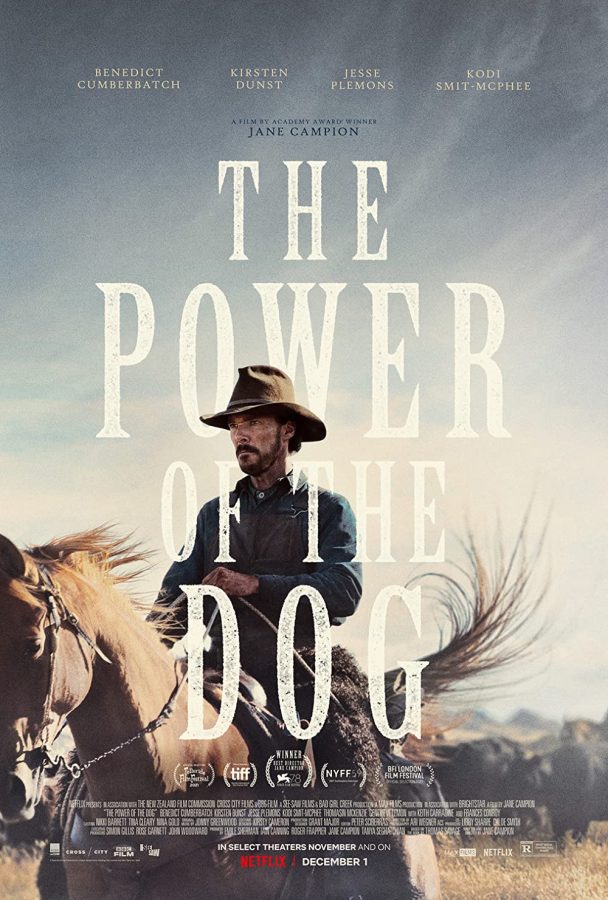“The Power of the Dog” review: Touch this rawhide, honey, touch ALL of this rawhide
March 18, 2022
New Zealand auteur Jane Campion breaks her 12-year directing hiatus with “The Power of the Dog,” a psychological and moody Western film. Recently garnering a whopping 11 Academy Award nominations, it is a raw yet masterfully made film on machismo, loneliness, love, and loss. A very tactile film with lingering skin and hide, Campion explores repression and desire against a unique yet familiar backdrop.
The film’s principal cast features only four players. Benedict Cumberbatch does cold and cutting well enough in the beginning of the film, but he finds his rhythm following his climax (if you know, you know) and explodes into a fully realized, fully human portrayal that more than justifies his Best Actor nomination. Jesse Plemons is very charming and sweet here, but it’s his wife (both in the film and in reality) Kirsten Dunst who steals the audience in every shot she’s in as a well-meaning woman under the influence. Kodi Smit-McPhee beautifully portrays Dunst’s frail, sweet son with nuance comparable to that of Timothee Chalamet’s Elio in “Call Me By Your Name.” Smit-McPhee especially shines in the final act of the film as his character comes into his own.
Shot digitally on the ever-popular Arri Alexa, cinematographer Ari Wegner masterfully balances sweeping wide shots with tight claustrophobic close-ups to bring to life Campion’s vision of a new type of Western film. The first act of the film is littered with dark, backlit scenes, but by the halfway mark, the sun beams on lush New Zealand and results in gorgeous, occasionally erotic shots, many of which could be pulled from a Wakefield Poole film. As the film comes to a close, back to darkness it returns.
Jonny Greenwood’s score is perhaps the highlight of the film, contradicting the film’s classic Western sensibilities with staccato plucked strings, inducing anxiety and alienation. Without this score, there is very little left to set apart what Campion has done compared to other reboots of the Western.
Although very specific in its setting and subject matter, “The Power of the Dog” has themes of universal appeal and really succeeds in its exploration of repression and sexuality. The story’s ancient ties, like Cumberbatch as the tragic hero and his near-pederastic relationship with Smit-McPhee’s character, mark this story as a classic Greek tragedy that any viewer can pick up on and find themselves in. Phil (Cumberbatch), older and calloused yet still madly driven by his desire for someone from his past, and Peter (Smit-McPhee), acting as his mirror that pokes and prods at him, are perhaps the two most successful elements of this film. Their relationship rips the film wide open and exposes its painfully human underbelly, a revelation hard to show in film but captured beautifully through Campion’s direction.
“The Power of the Dog” is a striking film full of gorgeous performances and a wonderfully human story that is certainly worth watching—if you’re able to sit through the first act. Squinting to discern the faces of the actors and the setting of the scene due to backlighting is no way to watch a film. Having to sit through nearly 40 minutes of it was like pulling teeth. It was nearly unforgivable but thankfully, the rest of the movie was so beautiful it was redeemed. Although the film is available on Netflix, I implore you to see it in theaters if you’re able, as nothing but the big screen could do it justice.








